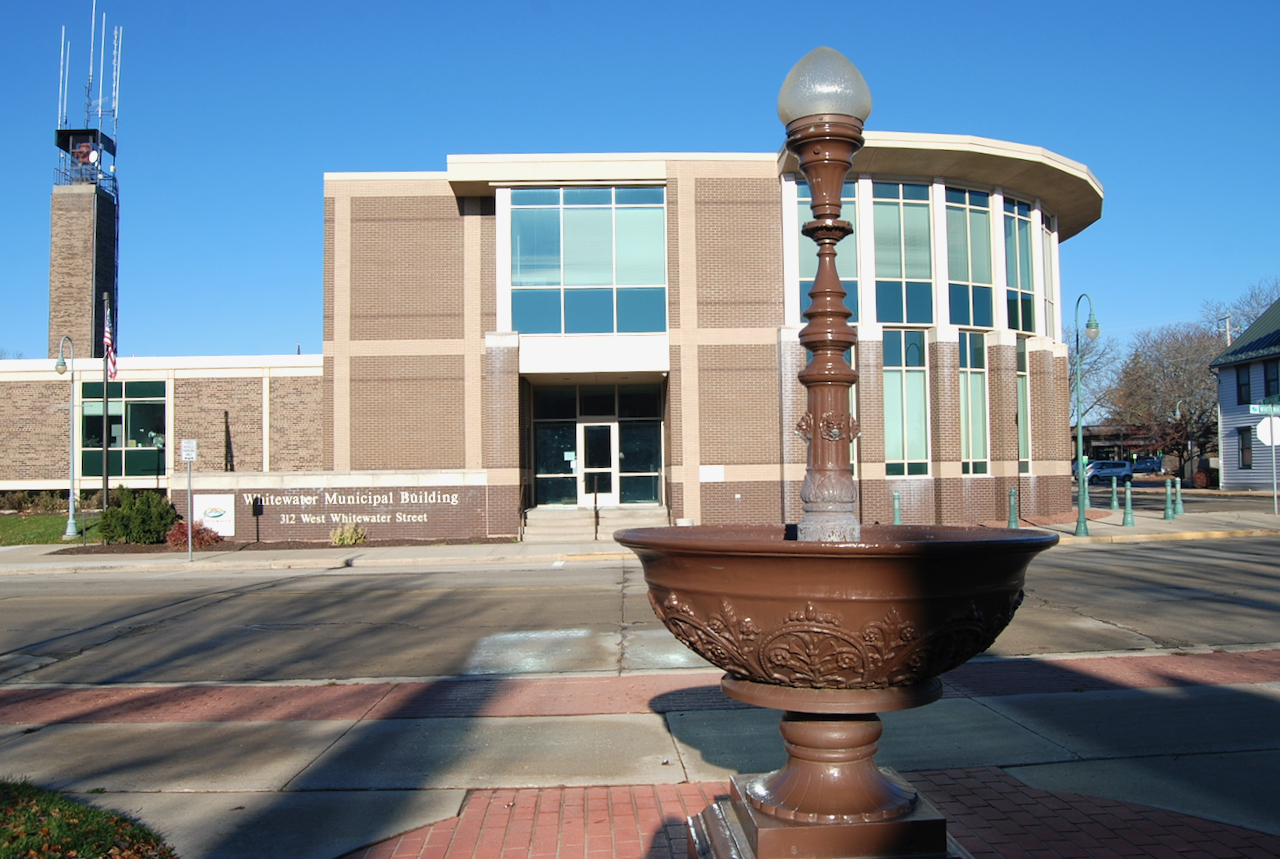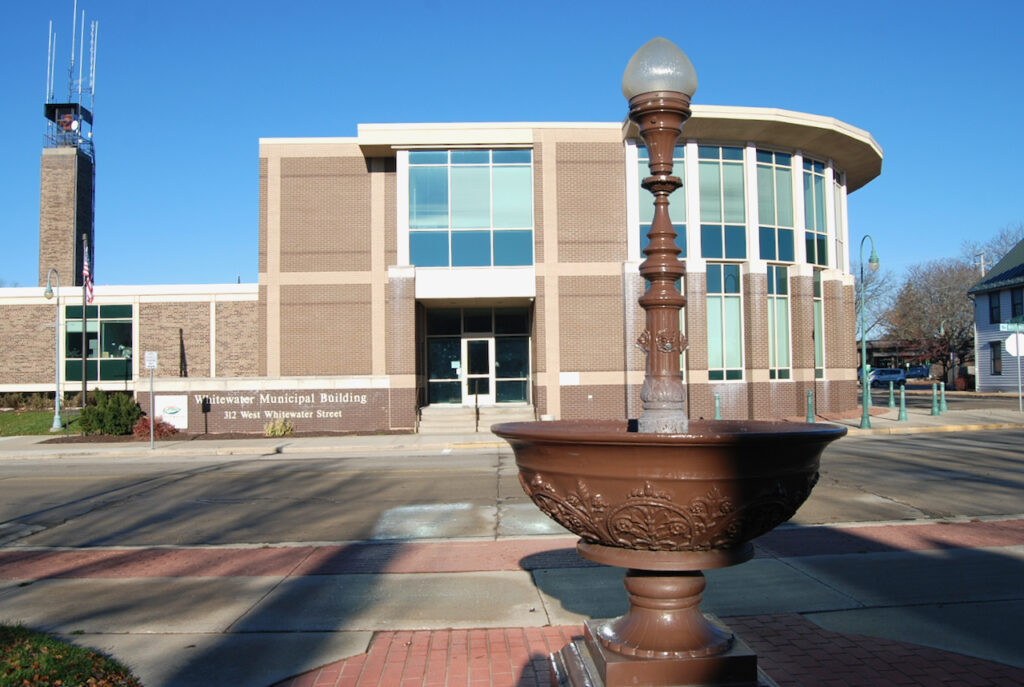By Kim McDarison
Orin Smith, a candidate running unopposed in April to fill an Aldermanic District 2 seat on the Whitewater Common Council, addressing council members Tuesday, asserted that a connection existed between a recent disturbance on the University of Wisconsin-Whitewater campus and the city’s recent letter to President Joe Biden.
Smith’s comments were delivered to council members during the public comments portion of the body’s regularly scheduled meeting.
Aided by a written statement, Smith opined that university students are “a part of the greater Whitewater community,” further asserting that a recent disturbance on the university’s campus, involving a swastika projected onto a campus building, was connected to the Biden letter sent in December and signed by the city’s Police Chief Dan Meyer and City Manager John Weidl. The letter has since garnered local, state and national media attention following a story published on WhitewaterWise about the council’s discussion and decision to send the letter. Within the letter, the two city officials expressed fiscal concerns associated with a growth in “newcomer” or immigrant populations within the city of Whitewater.
The story about the council’s discussion and decision to send the letter to Biden is here: https://whitewaterwise.com/council-approves-letter-to-president-joe-biden-describing-immigration-related-challenges-facing-local-law-enforcement/.
Smith, within his statement, said that a disturbance on campus on Jan. 21 — which, according to a report released through the announcements page on the university’s website, involved four individuals who appeared outside of a residence hall and chanted racist words, lit road flares, and displaying antisemitic symbols — was directly related to the city’s letter.
An earlier story about the January incident on campus is here: https://whitewaterwise.com/uw-whitewater-chancellor-addresses-students-regarding-racist-activity-sunday-on-campus/.
Addressing council, Smith said he is a third-year UW-Whitewater student, studying women’s and gender studies, and communications, with an emphasis in electronic media.
He cited campus and community involvements, saying: “I’m very involved in the Whitewater community, as the president of Alpha Delta Phi Society’s local chapter and the volunteer work those of us in Greek life do in the city. I contribute to community education and advocacy as president of IMPACT, which is the LGBTQ* student organization on campus. I am a regular attendee of a local church, and find connection in every other organization that I am a part of. I regularly frequent local businesses throughout the city and occupy space as a member of the city. I vote here in Whitewater, and for the vast majority of the year —including breaks and weekends — I live here.”
Additionally, he noted: “I firmly believe that the university is a part of the city, and that the students, staff, and faculty of the university are a part of the greater Whitewater community.”
Recounting events on campus in January, he said: “at around 5:40 p.m., a group recognized as Neo-Nazis by the Anti-Defamation League, known as the “Blood Tribe,” came onto our campus, into our city, and projected a swastika on a residence hall, and made calls for there to be ‘blood, blood, blood.’
“Not only is this organization known to target queer communities and queer people, but this organization posted on their social media, after the fact, that they came to our city as a result of the letter sent by Whitewater PD after discussing it in the December 19th council meeting.”
Smith said that while he understood that the letter was not signed by members of the city council, it was publicly discussed in a council meeting. Further, he said, “plans were created for the council to write their own letter regarding immigration, and ultimately Whitewater PD is a large part of the Whitewater city community.
“It has been incredibly disheartening and disappointing to not have seen any statement about, or even acknowledgement of, the events that took place on January 21st, knowing that these reprehensible actions took place within the city that we all share, and the results of their actions are causing shockwaves of fear and concern within and outside of the university.”
In conclusion, Smith said: “Given the connection the letter has to the city and the resulting events that took place, myself, and many others wish to see the city respond to these events. This event didn’t happen in a silo, or in another city, it happened in our city. This took place at the home of some of your community members and the home of some of your constituents. We are part of the city community as much as anyone else. For the city to ignore the harms done to, and the resulting concerns and fear of the university, its students, its staff, and its faculty, is for the city to do a great disservice to the larger Whitewater community.”
Also during the meeting, under an agenda item listed as “Immigration letter from common council,” following a brief discussion, council members opted against instructing the city manager to draft a second letter to Biden and other local, state, and national political representatives and elected officials on their behalf.

